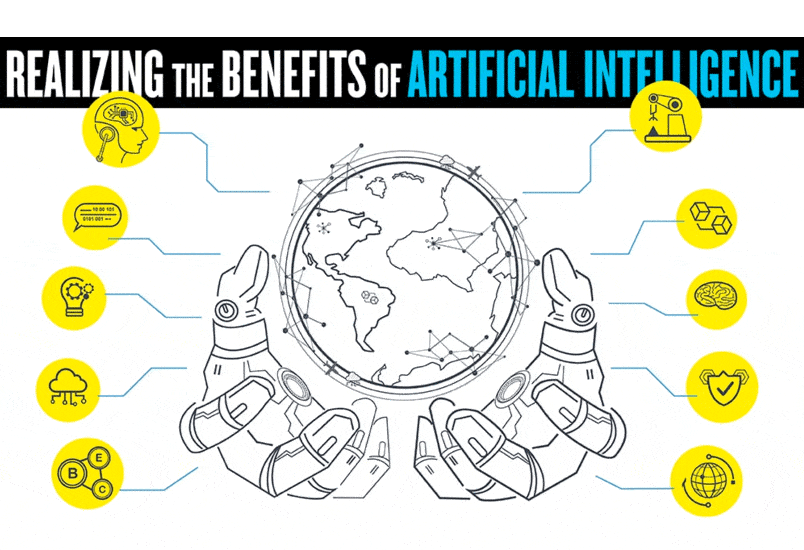Artificial Intelligence (AI) has become one of the hottest topics in manufacturing today. The range of business and operational applications that it can be put to is almost limitless. Yet, it’s fair to say that we’re still very early in the AI adoption curve. Success with AI implementation comes through evolution not revolution. Combining AI and analytics for manufacturers can provide a natural path.
The increasing digital transformation happening within manufacturers is bringing the potential of AI into focus. IDC suggests manufacturing companies are “at the heart of a perfect storm, both living with and seeking to exploit disruptive technologies such as cloud, big data, AI-assisted analytics and the Internet of Things (IoT), while facing increasing IT security challenges, regulatory pressures and a changing workforce”.
AI and analytics for manufacturers: Tackling the challenge of Big Data
The explosion of Big Data and IoT is pivotal. There is estimated to be upwards of 75 billion connected devices in operation by 2025 – the majority within the manufacturing sector. When you consider that a single device can produce gigabytes of information each minute, the volume and velocity of data within production and operations can easily become unmanageable – or, more often, simply ignored.
Making sense of that data is where AI comes in. Combining AI and analytics for manufacturers can bring together information from a wide variety of data sources, identify patterns and trends and provide recommendations for future actions. It provides the basis for new levels of production and business process automation as well as improved support for employees in the daily roles and in their decision-making.
It’s clear why a recent Forbes survey found that 44% of respondents classified AI as ‘highly important’ to their manufacturing function in the next five years, while 54% went so far as to say it was ‘absolutely critical to success’. Why, then, did the ‘Factories of the Future’ survey from the Manufacturing Leadership Council show that only 8% of companies have currently started implementing it?
AI. The time to start is now
Some manufacturers – especially automakers such as BMW and Ford – have been quick to adopt AI but most other manufacturers have taken a more cautious approach. As with most technology innovations, companies have preferred to be a ‘fast follower’ rather than an ‘early adopter’. They want to see successful AI use cases before implementing AI solutions themselves.
One OpenText™ customer has just started its journey to AI and commented: “Our experience so far has been that it is quite straightforward to add AI into our analytics applications. It becomes a business rather than a technical decision about how to proceed: Where can we deliver the most benefit to the company?”
Harvard Business Review has sounded an alarm about this approach, saying: “By the time a late adopter has done all the necessary preparation, earlier adopters will have taken considerable market share – they’ll be able to operate at substantially lower costs with better performance. In short, the winners may take all and late adopters may never catch up.”
The evolution of AI and analytics for manufacturers
There are signs that manufacturers are taking Harvard’s advice. If AI is still nascent in manufacturing today, it could be mainstream in less than 24 months. For example, the Manufacturing Leadership Council survey found that, while only 8% were currently using AI, a further 50% expected have deployed it within two years.
This speed of adoption can be achieved as many of the companies reporting success with AI today – 54% say that AI has already increased productivity – have done so by integrating AI into their existing big data and analytics solutions. In its predictions for 2019, PWC found that integrating AI and analytics is the top priority for manufacturers.
The Council’s survey showed that manufacturers are looking to digitize rapidly and companies shouldn’t delay exploring the benefits of AI until they’ve reached total digitized processes. Instead, an evolutionary approach based on building AI into the systems you already have in place will help reap the rewards that AI undoubtedly offers.
A full version of this article about combining AI and analytics was published in the Manufacturing Leadership Journal and as a blog on the Manufacturing Leadership Council website.
AI in manufacturing is one of the topics we’ll be covering during Enterprise World 2019 in Toronto. Reserve your place today.



